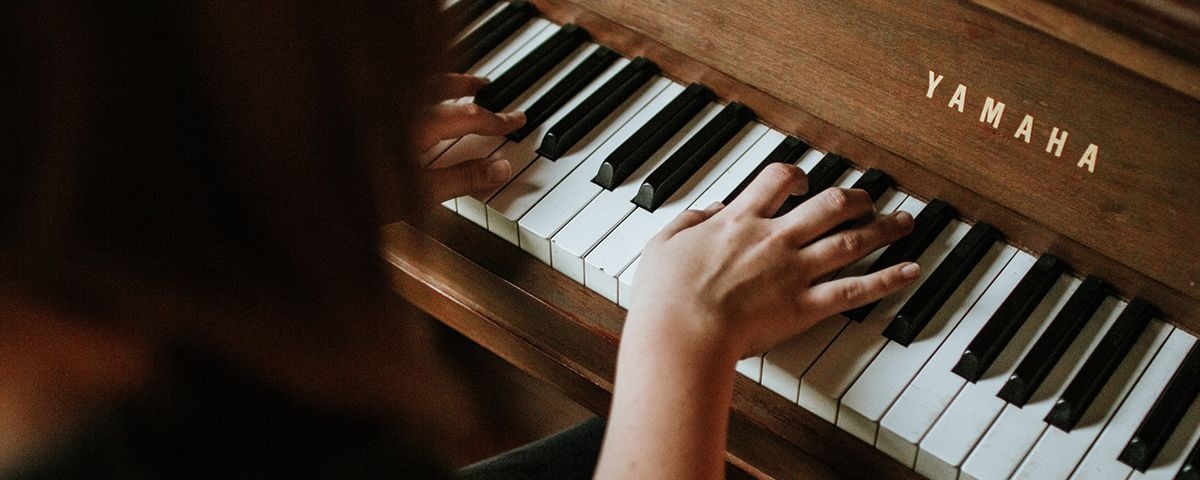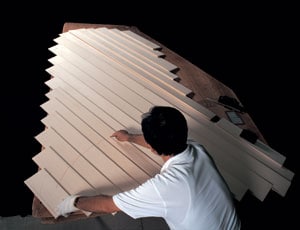Second Hand Pianos

Second Hand Pianos
Before purchasing a second hand piano, it is important for customers to be aware of the fact there is always a degree of risk involved. This is true whether you are purchasing from a piano dealer, or a private seller. More often than not, second hand pianos are “grey market imports”. This means that a piano has been brought in from Japan and sold to a piano dealer in Australia - arguably one of the highest risk piano purchases a consumer can make.
Before purchasing a second hand piano, it is important that you are aware of:
- Age
- Intended Country of Sale
- Build Quality/Pre-Sale Preparation
- Storage and Maintenance History
The Lifespan of an Acoustic Piano
There is a lot of misinformation surrounding the expected lifespan of a piano. This is hardly surprising, given that many stringed instruments do sound better with age if they are well maintained. We suspect this myth is also perpetuated by some more unscrupulous piano dealers. It is generally agreed by piano technicians that the best years of a pianos life are the first 20-30. After this, the vast majority of pianos, will require a fairly substantial refurbishment, regardless of build quality.
Depending on how well the piano has been maintained throughout this time, this could cost substantially more than buying an entirely new instrument. Indeed, the replacement of strings and tuning pins alone can cost upwards of $4000.
Of course, there are examples that run contrary to this, but they are few and far between. Perhaps Yamaha put it best by saying "they are a bit like people. Some people live to 100 years but don't perform as they did at 20."
Without a thorough inspection by a qualified technician, it is impossible to know whether the piano has been properly maintained, is damaged, how worn out the piano is, or whether it is in need of major rebuilding. It is also crucial to determine whether the piano was originally manufactured for the Australian market.
Grey Market Pianos
Australia's second hand market is absolutely flooded with grey market pianos. These primarily come from Japan, and while they are cheaper than their New counterparts, they are almost invariably end up costing more money within a few years.
Large Piano makers like Yamaha, Kawai and Steinway manufacture their pianos with the specific climate they are destined to be settle in in mind. That is to say, they design slight variants on the same instrument that take into account the climate of the country of sale.
During 50 years of exporting pianos to other parts of the word, Japanese researchers found that in general, the indoor environments of homes in Australia are considerably drier than in Japan. Some of this is related to the outdoor climate and some of it is related to the indoor environment, which is affected by such conditions as heating and air conditioning systems. This research led Yamaha to the development of computer-controlled drying kilns and other manufacturing procedures, so that pianos destined for Australia would be properly seasoned for the Australian home, thus avoiding moisture-related problems that can result in tuning issues, warping or cracking in the soundboard.
A used piano made for the Asian market is will almost invariably struggle with the dryness of the Australian climate. This can lead to the development of irreversible problems, and more often than not leads to problems that cost more than buying a new piano would have in the first place.
Most disturbingly, the majority of these grey market pianos are not being sold by private sellers, but piano shops.
Based on our experience with pianos not seasoned for the Australian market, from a service standpoint, we strongly discourage the
Do You Ever Sell Second Hand Pianos?
Yes, but very rarely. we don't often find second hand pianos that we are willing to chance - one or two a year at most, and they tend to disappear very quickly. We only take on pianos that were originally purchased at Logans, maintained regularly by one of our technicians, and have undergone an extremely thorough inspection.
We do not, as a rule buy cheap second hand pianos, or even take them as donations. Our interest is, and always has been in making sure that our customers get the absolute best value for money possible, and have an instrument they can count on. You can Contact us if you have questions about our stock.
Clients who are thinking of buying a secondhand piano may be surprised to find out the affordability of a new Yamaha piano. Many people purchase a used piano for the same price as a new Yamaha piano from Logans, including delivery and Australia's most comprehensive pre-sale piano preparation
What about Purchasing a Used Yamaha Piano?
Customers frequently call the Piano Technical Manager at Yamaha Music Australia to ask about purchasing a used Yamaha piano. Typically, they want to know how old the piano is, whether it is a good piano or not, how much the piano is worth, and if they should purchase it or not. We do our best to answer their questions, from a technical standpoint. We first remind the customer that they are asking us about a used piano. We explain that there is always some degree of risk involved in purchasing any used product. Without a thorough inspection by a qualified technician, it is impossible to know whether the piano has been properly maintained. Whether or not it is damaged, how worn out the piano is, or whether the piano is in need of major rebuilding. We recommend that they contact a competent piano technician and have the technician make a thorough inspection of the piano, before purchasing it. We can also run a serial number search on the instrument to confirm year of manufacture and if the piano was originally manufactured for the Australian market.
What Potential Used Piano Buyers Should Be Aware Of
Along with the extensive experience we have had providing warranty support for Yamaha pianos in Australia, we can provide information that may assist in reducing the purchase risk for the potential customer. More and more frequently, however, the used pianos customers are asking about were not originally sold new into the Australian market. More often than not, it is a well-used older piano that was recently brought in from Japan and sold to a piano dealer in Australia (a "grey market import"). When asked about one of these pianos we cannot provide information about the piano, other than the year of manufacture and that it was not made for this market.
What's The Main Issue With Used Yamaha Pianos Made for Overseas Markets?
Yamaha had manufactured pianos for Japan and the Asian market for over 50 years before exporting pianos to other parts of the world. When Yamaha began exporting pianos to Australia and North America the Yamaha engineers were unaware of the level of dryness that existed in Australian and North American homes. As a result, some of the first pianos sold in Australia during the 1960s developed dryness-related problems. Upon researching these problems, our engineers found that in general, the indoor environments of homes in Australia are considerably drier than in Japan. Some of this is related to the outdoor climate and some of it is related to the indoor environment, which is affected by such conditions as air conditioning and heating systems. This research led Yamaha to the development of computer-controlled drying kilns, as well as other manufacturing procedures, so that pianos destined for Australia would be properly seasoned for the Australian home. Most of the used Yamaha pianos being brought in to Australia today are pianos that were manufactured for the Japanese market. These instruments were manufactured using the same seasoning techniques that were used on the pianos we had moisture-related problems with. In addition, these used pianos have lived in a very moist environment since they were new.
So What Does Yamaha Music Australia Recommend?

Will one of these pianos develop severe problems after several years in Australia? Unless the piano is placed in a very humid environment (similar to Japan), the piano could potentially develop problems that will be expensive to correct. We know this because of the numerous calls we receive from customers and piano technicians reporting dryness-related problems with these used pianos brought in from Japan. We do not experience these types of problems with pianos that are seasoned for the Australian market. Parts availability is another problem facing the purchaser of a Yamaha piano not made for the Australian market. Yamaha makes different models of pianos for various markets around the world. There are many models of Yamaha pianos that were sold in Japan that were never sold in Australia. From a service standpoint, we do not have information on these models. As a result, part replacement, in most cases, is a challenging and sometimes lengthy process.
Based on our experience with pianos not seasoned for the Australian market, from a service standpoint, we strongly discourage the purchase of one of these used "made for Japan" pianos.
You can locate your nearest Yamaha accredited technician on their website. Service Centers. Note that Logans are listed as the only Authorised dealer and service centre in NSW.
For more Information, Yamaha have additional information on second hand pianos here
